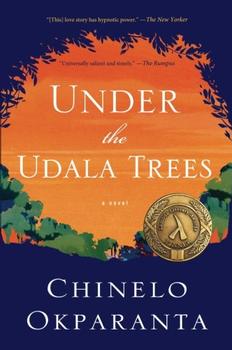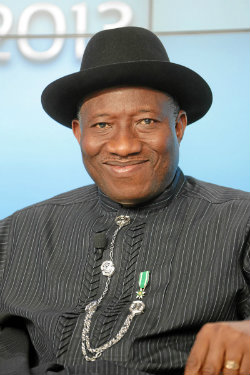Summary | Excerpt | Reading Guide | Discuss | Reviews | Beyond the Book | Read-Alikes | Genres & Themes | Author Bio

This article relates to Under the Udala Trees
Over the course of Under the Udala Trees, the heroine, Ijeoma, discovers she's a lesbian, at first fighting her inclinations and trying to fit in, but later accepting that she's different from many of her peers.
 Although homosexuals have gained more acceptance over the past decade in the United States and other Western countries, they've actually lost rights over the past few years in many areas of Africa. Same-sex relations are currently outlawed in at least 34 of the 55 African states, with Nigeria's Same Sex Marriage Prohibition Act being among the most strict. Unanimously passed by Nigeria's House of Representatives and signed into law by (then) President Goodluck Jonathan on January 7, 2014, the law imposes a penalty of up to 14 years in jail for individuals committing homosexual acts and up to 10 years in jail for anyone who "administers, witnesses, abets or aids" a homosexual man or woman. Speaking on behalf of the president, his aide Reuben Abati said, "This is a law that is in line with the people's cultural and religious inclination. So it is a law that is a reflection of the beliefs and orientation of Nigerian people...Nigerians are pleased with it."
Although homosexuals have gained more acceptance over the past decade in the United States and other Western countries, they've actually lost rights over the past few years in many areas of Africa. Same-sex relations are currently outlawed in at least 34 of the 55 African states, with Nigeria's Same Sex Marriage Prohibition Act being among the most strict. Unanimously passed by Nigeria's House of Representatives and signed into law by (then) President Goodluck Jonathan on January 7, 2014, the law imposes a penalty of up to 14 years in jail for individuals committing homosexual acts and up to 10 years in jail for anyone who "administers, witnesses, abets or aids" a homosexual man or woman. Speaking on behalf of the president, his aide Reuben Abati said, "This is a law that is in line with the people's cultural and religious inclination. So it is a law that is a reflection of the beliefs and orientation of Nigerian people...Nigerians are pleased with it."
The sad truth is that his statement is not an exaggeration of the population's stance on the issue; a recent Pew Research Center survey determined that 98% of the country disapproves of homosexuality.
Homosexuals in Nigeria and other African states are frequently the targets of mob violence, with the crimes committed against these individuals going uninvestigated, even when the victims are killed. Indeed, in northern Nigeria as well as Mauritania and Sudan, being arrested as a homosexual can result in the death penalty, while in Uganda, a convicted homosexual can be sentenced to life in prison. In some countries individuals can be publicly lashed for the "crime" of being gay; engaging in same-sex behavior in Angola, Mauritius, Morocco and Mozambique can result in a sentence of hard labor.
American President Barack Obama has urged African states to decriminalize homosexuality, and other members of the international community have discussed putting in place economic sanctions against countries because of their stand on the subject. Various African leaders have pushed back, however, claiming that acceptance of same sex relationships is a purely Western idea and one that is completely alien to Africans. Kenyan President Uhuru Kenyatta said in response to President Obama, "There are some things that we must admit we don't share…It's very difficult for us to impose on people that which they themselves do not accept." According to The African Sun Times, Kenyan Cardinal John Njue, Archbishop of Nairobi and president of the Kenyan Episcopal Conference, commented that, "Those people who have already ruined their society...let them not become our teachers to tell us where to go...I think we need to act according to our own traditions and our faiths."
Twelve African nations have no laws criminalizing homosexuality, but even in these "safe havens" discrimination against gays and lesbians is common. The nation of South Africa is the one exception on the continent as the only African nation to have laws prohibiting discrimination against homosexuals; it is also the only African country to permit same-sex marriage.
Picture of ex-Nigerian President Goodluck Jonathan by January
Filed under Society and Politics
![]() This "beyond the book article" relates to Under the Udala Trees. It originally ran in October 2015 and has been updated for the
September 2016 paperback edition.
Go to magazine.
This "beyond the book article" relates to Under the Udala Trees. It originally ran in October 2015 and has been updated for the
September 2016 paperback edition.
Go to magazine.
To make a library it takes two volumes and a fire. Two volumes and a fire, and interest. The interest alone will ...
Click Here to find out who said this, as well as discovering other famous literary quotes!
Your guide toexceptional books
BookBrowse seeks out and recommends the best in contemporary fiction and nonfiction—books that not only engage and entertain but also deepen our understanding of ourselves and the world around us.